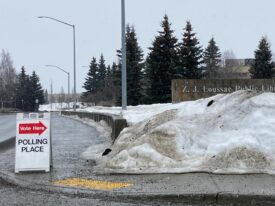For Immediate Release: October 3, 2022
Media Contacts:
Jay Lee, Democracy Researcher
jay@sightline.org, @jaylee_tx
Michael Andersen, Senior Housing Researcher
michael@sightline.org, @andersem
The Downsides of Single-winner Districts
Research shows that single-winner districts invite gerrymandering and worsen housing shortages
Portland, OR – This afternoon, Councilor Mingus Mapps released an alternate proposal to Measure 26-228, which has been referred to voters by the Portland Charter Commission.
Mapps’ proposal segments Portland into seven single-member council districts, a substantial departure from Measure 26-228.
Sightline Institute has researched single-winner and multi-winner districts, and both plurality and ranked choice elections in each. Our research shows, in brief:
- Single-winner districts cannot solve Portland’s representation problem for underrepresented populations. According to analysis by MGGG Redistricting Lab, dividing Portland into single-winner districts will not allow voters of color to reliably elect any candidates of choice. Even if Portland expands the council to nine members, each elected by district. MGGG’s modeling was about people of color, but the results apply to Portlanders who are in the minority for any number of reasons: small business owners, youth, people who are dependent on transit, those who get around by bike, or parents of school-age children.
- Single-winner districts invite gerrymandering, in which politicians pick their voters, instead of voters picking their politicians. Single-winner districts are the paradigmatic system of elections in which gerrymandering flourishes. Gerrymandering is almost impossible to do in a system of multi-winner districts and ranked choice voting: the mathematical parameters are too numerous.
- Single-winner districts suppress home-building and worsen housing shortages. US cities that switched from at-large elections to single-winner district elections for their city councils saw a 20 percent reduction, on average, in the permitting of dwellings as a result of the change in government. Systems of proportional representation around the world routinely yield increased housing production, because representatives speak not for small geographic areas but for a variety of political interests, such as renters.
However, voters of color and other underrepresented groups would be guaranteed a fair shot at electing councilors of choice if Portland were to adopt multi-winner council races with proportional ranked choice voting. Most groups don’t all live in just one part of the city, so districts might not help them have a voice, but proportional voting would.
Available for Interview:
Michael Andersen, Senior Housing Researcher, has been writing about ways better municipal policy can help break poverty cycles, with a focus on housing and transportation, since 2007. His work before joining Sightline in 2018 included reporting and editing for print and web in Longview and Vancouver, WA, and Portland, OR. Find his latest research here, email him at michael@sightline.org, and follow him on Twitter at @andersem.
Jay Lee, Democracy Researcher, works in Sightline’s Democracy program. He has a quantitative background in statistics and elections research, and prior to joining Sightline worked with Reed College’s Early Voting Information Center. Professionally, Jay is interested in voting system reforms, the over 90,000 local governments in the United States, reproducibility in scientific computing and data science, and causal inference techniques for isolating effects in observational studies. Find his latest research here. Email him at jay@sightline.org, and follow him on Twitter at @jaylee_tx.
About Sightline Institute: : Sightline Institute is an independent, nonprofit think tank providing leading original analysis of housing, democracy, and energy policy in the Pacific Northwest and beyond.






